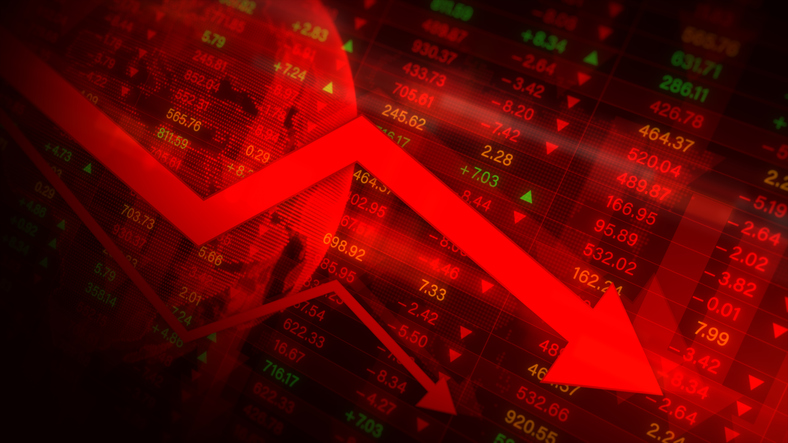The AI Frenzy is Hitting a Wall
For the last two years, investors have poured into tech stocks, convinced that artificial intelligence (AI) would change the world overnight. It was supposed to be a revolution, the second coming of the internet. But what happens when the companies driving this revolution aren’t as indispensable as we thought?
Enter DeepSeek—the technology that suggests AI development might not need ultra-expensive chips from Nvidia, Broadcom, or Taiwan Semiconductor. If that turns out to be true, then trillions of dollars have been misallocated, and the tech sector’s relentless run could come to a screeching halt. The ripple effects would be catastrophic, sending shockwaves through earnings reports, investor portfolios, and the broader economy.
It also raises bigger questions: Has AI reached its limit, at least in terms of immediate profitability? Will companies realize they over-invested in infrastructure? And if the expected returns from AI don’t materialize, what will happen to the massive corporate budgets that have been banking on endless AI expansion?
Tech’s Overvaluation is a Time Bomb
Tech isn’t just another sector in the S&P 500—it’s the sector. As of today, it makes up over 34% of the entire index, meaning when it stumbles, the broader market follows.

The problem? Tech stocks are trading at massive valuation premiums.
Consider this:
- The S&P 500 trades at about 22x forward earnings.
- The tech-heavy Nasdaq has skyrocketed over 320% since 2013.
- The “Magnificent 7” stocks account for nearly 23% of total market earnings in 2025 projections.
- Some individual tech stocks trade at 30x, 40x, or even 50x forward earnings, levels that are historically unsustainable.
In simple terms: the market is more reliant on tech now than at any point in history. If tech earnings fail to meet sky-high expectations—especially as economic conditions shift—there’s a huge gap that the rest of the market isn’t positioned to fill. That’s a major problem, one that could force institutional investors to rebalance in ways that trigger market-wide corrections.
The Economy is Moving Away from Tech’s Favor
For years, tech has thrived in an environment of low interest rates, slow growth, and globalization. But those conditions are changing:
- Interest rates are still near multi-year highs, despite some Fed cuts.
- Economic growth remains resilient, meaning investors might look beyond tech for opportunities.
- Globalization is slowing, with protectionist policies threatening multinational tech giants.
All of these factors mean that for the first time in years, tech might not be the automatic winner. If the rest of the market finally starts to outperform, capital will flow out of tech into sectors like energy, industrials, and financials.

What Happens If The Tech Bubble Pops?
Let’s take Nvidia as an example. Right now, the company is trading at around 32x forward earnings, but that assumes future earnings will grow at breakneck speed. If AI infrastructure demand slows and Nvidia’s earnings growth comes in lower than expected, the stock’s real valuation could be much higher—potentially 50x or 60x earnings. That would make it one of the most expensive large-cap stocks in history.

And it’s not just Nvidia. The rest of the Magnificent 7—Apple, Amazon, Microsoft, Google, Meta, and Tesla—are all priced for perfection. If their growth slows, their stock prices have a long way to fall before they reach sustainable valuations.
A tech correction wouldn’t just hit those stocks, though. It would drag down the entire market. Institutional funds that are overweight in tech would be forced to unwind positions, sending shockwaves through sectors that have nothing to do with AI or semiconductors.
What This Means for Your Portfolio
Does this mean a full-blown collapse is coming? Not necessarily. But it does mean that if your portfolio mirrors the S&P 500—with heavy exposure to tech—you could be in for some serious turbulence. Blindly riding the AI wave is no longer a winning strategy.
Smart investors are already rotating into other areas, reducing tech exposure, and preparing for a market that rewards value over hype. That means looking at sectors that benefit from the economic shift—energy, materials, financials, and industrials—rather than just chasing the next tech rally.
A shift away from tech doesn’t mean abandoning it altogether. AI will still be transformative, but valuations need to align with reality. And right now, reality suggests that the rest of the market is starting to catch up.
Do you have your tickets for Investors Blueprint Live later this month? I’ll be there, giving presentations about option spreads and scanning your way to new option opportunities. Watch this 9-minute video to learn more.


